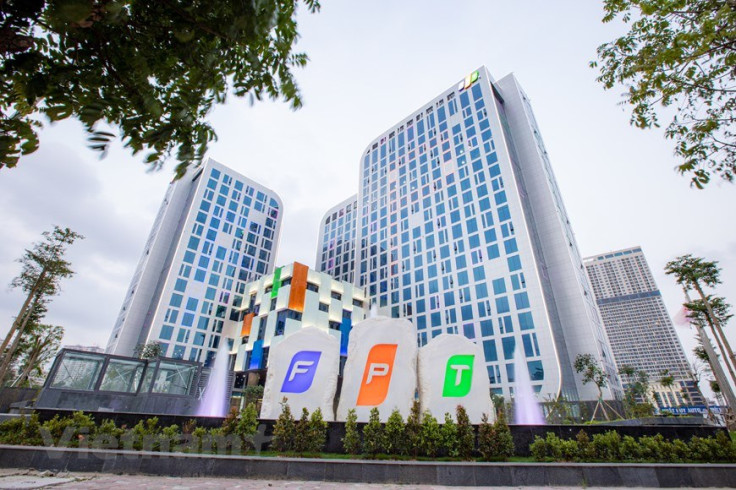Vietnam Bets Big on Digital Future—And Its Top Tech Player Is Leading the Charge
The tech powerhouse behind Chelsea Football Club is now driving Vietnam's digital future.

Adopted in December 2024, Vietnam's Resolution 57 marked a significant shift—putting science, technology, and digital transformation at the core of national development.
'Science and technology, innovation, and digital transformation are the decisive forces for national development in the new era,' stated Vietnam's top leader, To Lam, in Resolution 57.
Over the past decade, the country's tech landscape has grown from fragmented early efforts into one of Southeast Asia's most active hubs. During this transformation, its largest tech firm, FPT Corporation (FPT), has emerged as a key force—leading in AI and digital innovation.
From Startup to Industry Leader
Vietnam is fast becoming a digital powerhouse. It ranks 39th in AI readiness and will attract over $36 billion in FDI in 2023.
Among its leading players is FPT, a tech firm that started small in 1988 and now operates in 30 countries across Asia, North America and Europe. FPT has been a pioneer in AI and digital transformation.
Its platform, FPT.AI, serves more than 100 enterprises and 16 million users across 15 countries—tools like AI.Mentor and CodeVista automate and streamline process to enhance operations, while homegrown, embedded solutions like xMainframe use GenAI to address critical coding challenges for legacy modernisation - #1 IT priority for CIOs globally.
'At FPT, we view Intelligence Transformation as the cornerstone for driving business reinvention and optimisation,' stated Pham Minh Tuan, CEO of FPT Software and Executive Vice President of FPT Corporation, in an email interview. 'We expect every FPT employee to be an expert in AI—whether it's developing new models, creating AI agents, or leveraging AI to enhance productivity and work quality for our global clients.'
Over the past eight years, this tech giant has invested heavily in AI infrastructure. It built two AI Factories in Vietnam and Japan, each worth US$200 million, leveraging NVIDIA's advanced GPU technology.
Strategic partnerships have elevated FPT's global profile. The company works with technology leaders such as NVIDIA, Microsoft, Landing AI, and Mila Quebec Institute.
Vietnam's tech leader has also earned international recognition as the official global technology partner of Chelsea Football Club.
'Vietnam has experienced significant growth in recent years and emerged as a global digital hub, thanks to the energy and spirit of its people,' said Todd Kline, President of Commercial at Chelsea FC, in a release. 'FPT's expertise in core business systems, data intelligence, and AI makes them the perfect partner to propel Chelsea FC into this new era.'
Its innovation efforts go beyond global partnerships. The firm actively nurtures Vietnam's startup ecosystem. 'FPT has allocated substantial resources to support several technology startups, such as acquiring Base Enterprise in 2011,' said Tuan. 'To drive innovation and maximise the impact and efficiency of Intelligence Transformation for both our clients and the startups we collaborate with, we adopt a 'sandbox' mindset to foster an open environment for transformation by removing traditional constraints related to mechanisms, policies, and operational principles.'
Huynh Cong Thang, CEO of the Vietnam Innovation Summit and an expert on Vietnam startup ecosystems, emphasised that the collaboration between big tech companies and incubators plays a crucial role in nurturing talent and driving innovation within the tech sector.
'This collaborative ecosystem benefits both parties.' Thang said, 'Big tech companies gain access to innovative ideas and potential investments, while startups receive crucial support for growth and success.'
Turning Policy into Practice
Vietnam's digital future depends not only on policy but also on execution. Resolution 57 sets a long-term goal of transforming Vietnam into a high-income, tech-powered economy by 2045. The roadmap prioritises AI, semiconductors, and stronger public-private partnerships.
'For decades, Vietnam has gone global with software. From now on, the world will come to Vietnam—because we have the potential to lead in AI and semiconductors.', affirmed Truong Gia Binh, Chairman of FPT Corporation. 'These are core technologies that every country needs. That is Vietnam's future.'

Its action plan focuses on five strategic pillars: AI, automotive technology, semiconductors, digital transformation, and green transformation. The company works with government agencies to digitise public services, from digital ID to citizen services and smart city systems.
Xavier Depouilly, Managing Director of the leading research firm - Indochina Research Vietnam, who has followed tech transition in Vietnam for over two decades, said that Vietnam is well-positioned to accelerate transformation thanks to coordinated investment and policy direction.
'Leading conglomerates like FPT have played a pivotal role in building Vietnam's digital infrastructure and supporting human capital development.' Depouilly said, 'Their investments in next-generation networks, AI training, and cloud services are shaping the future of the nation's digital economy.'
Navigating Global Risks
As Vietnam's digital economy scales up, the infrastructure, talent, and startup resilience gaps are becoming more visible.
Bruno Sivanandan, a specialist in the tech landscape and co-chairman of EuroCham Vietnam's Digital Sector Committee, pointed out the urgent need to strengthen early-stage support.
'The challenges, in my opinion, lie in enabling businesses to build robust tools to strengthen the ecosystem,' Sivanandan said. 'It is well known that investments in cybersecurity are burdensome, especially in the first stages of a business.'
These challenges reflect global concerns. According to Marsh's 2024 Global Tech Risk Report, cybersecurity threats, AI misuse, and data privacy remain top risks for tech companies worldwide.
FPT has joined the AI Alliance with global giants like IBM and Meta to address this challenge, adopted ISO-certified frameworks, and built governance teams to address algorithmic bias and data privacy across borders.
Yet resilience isn't just about systems—it's about people. FPT stands out with its education sector, especially FPT University, which plays a crucial role in developing Vietnam's talent pipeline. FPT University provides high-quality education and training to thousands of students annually, including in areas like AI and semiconductors.
'Focusing on providing education targeted for critical industries prioritised by the government is essential. Continuous investment in developing a skilled workforce includes special training facilities, training programs, scholarships, and collaborations with international institutions to ensure that the talent pool is equipped with the latest skills and knowledge.'
FPT remains committed to its global growth ambition – targeting 5 billion USD in global IT services by 2030.
About the author: Sammuel Chong is a Hong Kong-based journalist with a strong background in business, technology, and startups. He covers business and technology and focuses on startup fundraising activities throughout the APAC region.
© Copyright IBTimes 2025. All rights reserved.





















